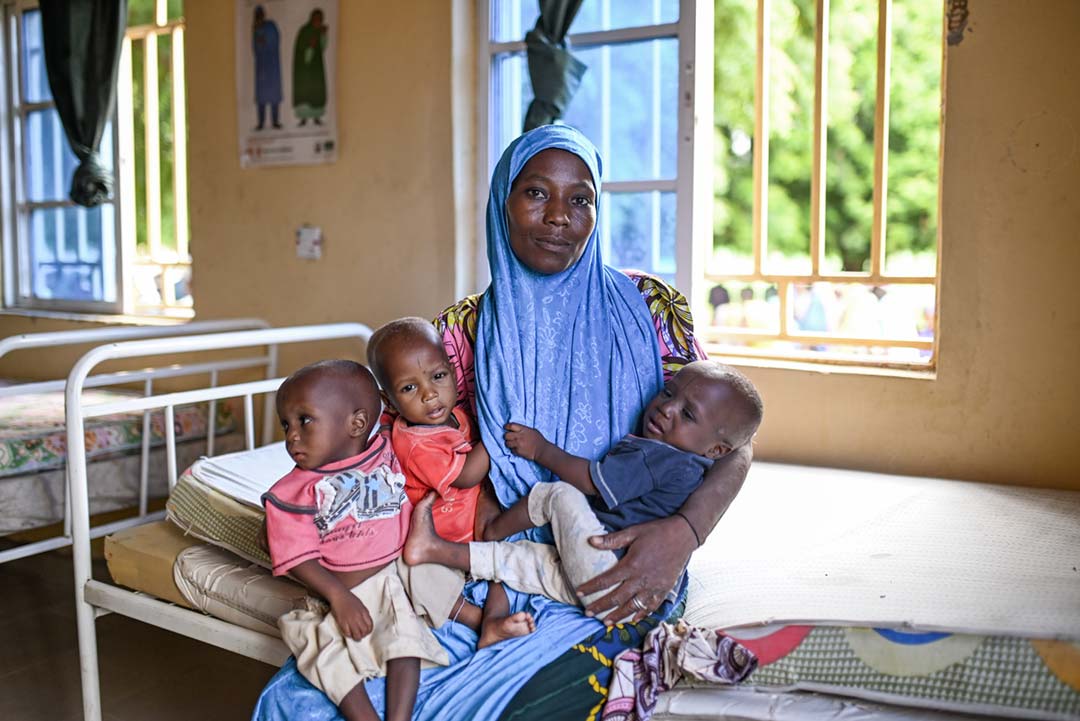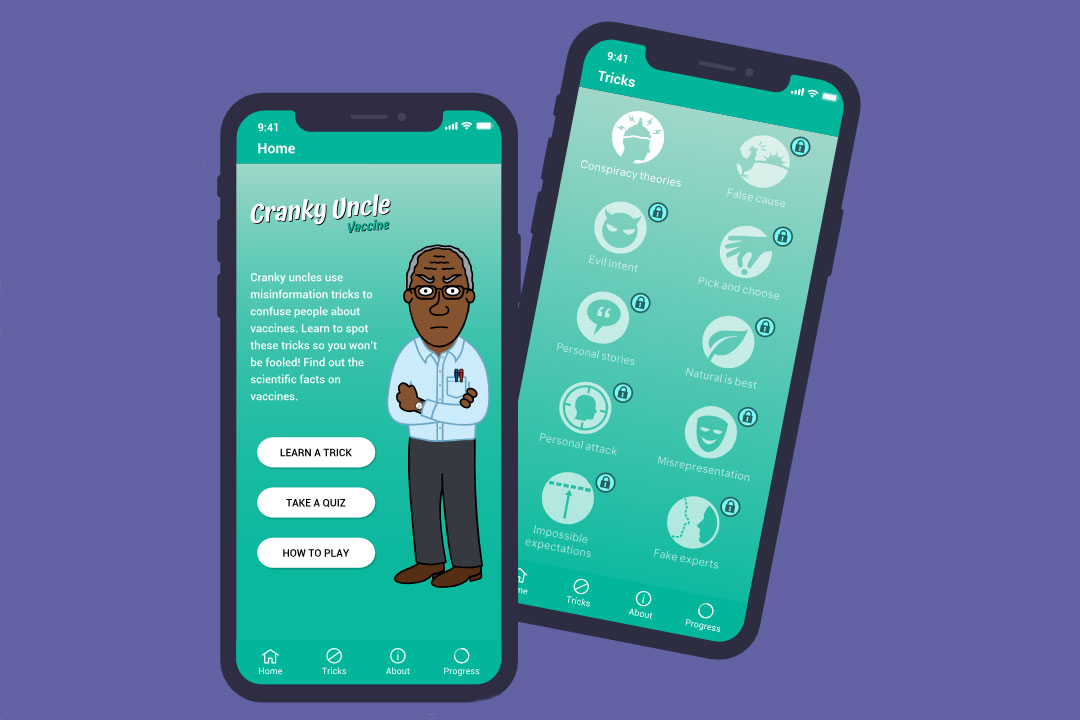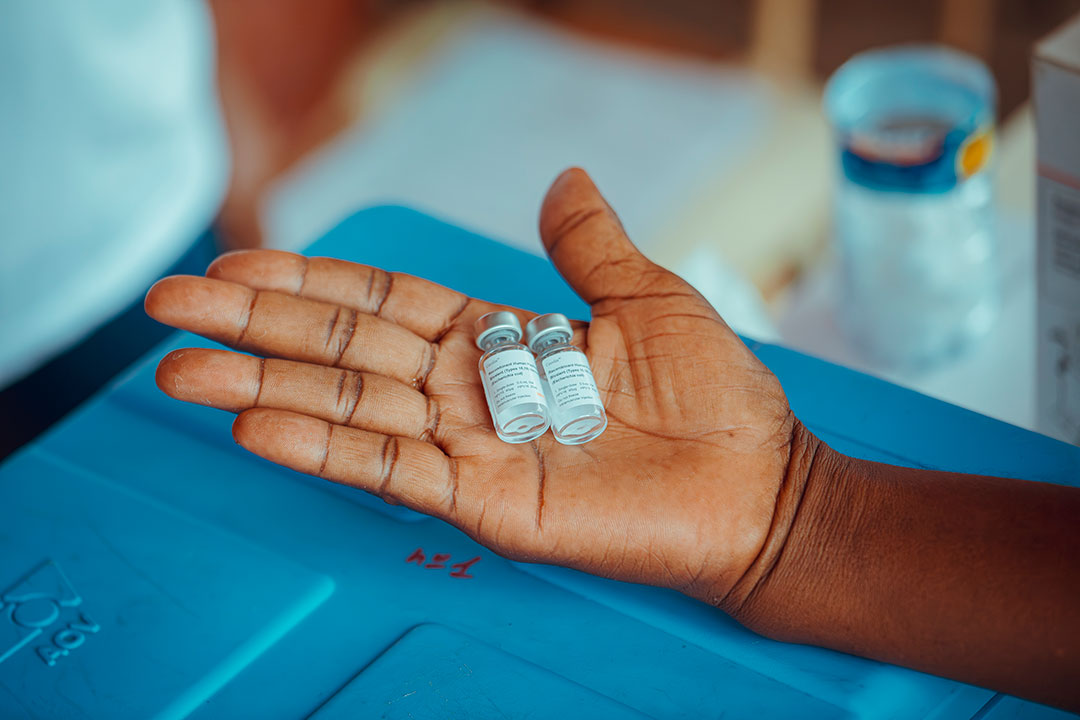Six things we’ve learned from Nigeria’s efforts to reach the unimmunised
Reaching the country’s 2.2 million unvaccinated children will require a comprehensive approach.
- 5 December 2024
- 6 min read
- by Priya Joi

In 2023 a staggering 14.5 million children, mostly in lower and middle-income countries, didn't receive a single routine childhood vaccine. This is up from 13.9 million in 2022.
Nigeria is home to an estimated 2.1 million of these zero-dose children, making it the largest population of unvaccinated children in Africa.
"We should empower health care workers to educate communities promptly and also leverage the influence of religious leaders as an important final step in reducing [the number of] zero-dose children."
– Mohammed Yahaya, Project Coordinator of the Nigeria Zero-Dose Learning Hub
The country has made progress over the last two decades, with the proportion of children receiving at least one dose of diphtheria, tetanus and pertussis-containing vaccine (DTP1 – a proxy for vaccine coverage) increasing from 42% in 2000 to 70% in 2023.
But there is a long way to go still to reach Nigeria's national target of achieving an average national coverage of all routine antigens of 80% by 2028.
To help discover and disseminate the best ways to reach these missing children, Gavi and partners, working in close collaboration with national governments, have created the Zero-Dose Learning Hub (ZDLH) which operates in Nigeria as well as Bangladesh, Mali and Uganda.
Starting in January 2023, the Nigeria Learning Hub has been collaborating with local stakeholders to generate evidence-based insights into barriers and enablers for reaching zero-dose children.
"We know we need to do things differently, and we don't have adequate answers for how to reach children and missed communities who have been systematically missed, and to bring them in to the health system and primary health care services," says Heidi Reynolds, senior specialist at Gavi who leads on the Learning Hubs.
Here are six key learnings from their work so far.
1. Vaccine stock-outs are frequent
Frequent vaccine stock-outs, in which local health centres momentarily run out of vaccines, and poor cold chain infrastructure significantly affects vaccine availability. In a country where parents don't make it to health centres often, not having the vaccine available may mean they never try again.
For instance, a 2019 study by Gooding et al found that stock-outs significantly affected the number of children vaccinated against polio, BCG, measles, yellow fever, Penta, pneumococcal conjugate and hepatitis B. A stock-out of the polio vaccine resulted in 226 fewer children receiving the vaccine in the same month.
Gavi is working with the government on a multi-year project to improve the cold chain and stock management to drastically reduce the number of stock-outs, and has installed over 6,000 solar-powered vaccine fridges in the country since 2017.
2. Health facilities rely heavily on volunteers and lack sufficient doctors
Nigeria has a severe shortage of health care staff, which means health facilities rely heavily on volunteers. The country has one to two doctors to every 10,000 patients, an order of magnitude lower than the WHO's recommended 1:1,000 doctor to patient ratio.
The volunteers working in their place do incredible work for no or little remuneration, however without adequate personnel, issues like long waits, irregular opening hours and a lack of follow-up care can all help dissuade parents from bringing their children for vaccination.
3. There's a clear link between low education, unemployment and lower income in families with unvaccinated kids
A lack of education or health knowledge can affect whether caregivers bring their children for vaccination. The Nigeria Hub found that 52% of caregivers of children who are unvaccinated don't believe in vaccination.
Unemployment and the income levels of caregivers, as well as travel autonomy, were also found to influence vaccination status in some parts of the country, especially in hard-to-reach, far-to-reach and security-compromised and fragile settings. Nomadic communities also rarely have access to the same health services year-around, which can interrupt access to vaccines.
Families often, understandably, prioritise immediate economic needs over health care, especially where vaccination sites require travel.
"Targeted outreach to families and strengthened collaboration with partner organisations could help bridge this gap," says AFENET's Mohammed Yahaya, Project Coordinator of the Nigeria Zero-Dose Learning Hub.
4. Low trust in health care workers and poor vaccine confidence lowers immunisation rates
The Nigeria Hub results showed that 42% of caregivers of zero-dose children do not trust health care workers that vaccinate children and 50% of do not believe that vaccines are safe. These are significant numbers that are impacting immunisation rates.
Some communities have low trust in vaccines due to misinformation and past experiences with health care services. This is where building the capacity of health care workers on effective communication skills, cultural sensitivity and community engagement techniques to improve service quality could work to reinforce trust.
There is also limited knowledge of vaccine benefits, which can lead to significant drop-out rates. In addition, religious ideologies can be in conflict with the acceptance of immunisation.
Leveraging local leaders and organisations can build trust and combat misinformation. Collaborating with religious leaders to engage communities has been shown to be a powerful tool in Nigeria to help correct misinformation.
"We recommend building trust through effective communication, better attitude of health care workers to clients, regular community engagement and collaboration with local leaders in immunisation sessions planning and implementation," says Yahaya.
"This will enable us to overcome vaccine hesitancy, dispel misinformation and promote informed decision-making among families. We should also empower health care workers to educate communities promptly and also leverage the influence of religious leaders as an important final step in reducing [the number of] zero-dose children."
5. Segmented data systems affect the ability to monitor vaccine coverage
Inconsistent or inaccurate data systems undermine the ability to effectively monitor immunisation coverage. The quality of data on routine immunisation reported in Nigeria has been a long-standing concern, affecting its usability for prompt decision-making.
The Nigeria Learning Hub implemented a decentralised monitoring approach that uses a community-based survey to generate evidence on behavioural factors hindering vaccine uptake as well as identifying poor performing areas. Plans to tackle low vaccine coverage are then monitored using the same system. Data quality assessments are used to help improve the admin data.
6. Most women don't have the decision-making power – or financial autonomy – to choose to vaccinate their children
Women are the primary caregivers (in 92% of cases) yet are often not able to ensure their children are vaccinated because of their limited participation in joint household decisions. This is particularly true when there is a financial cost, for example for transport, however most (88%) women surveyed required their husband's permission to vaccinate children.
If health workers and other partners engaged in dialogue this could increase women's participation in joint household decision on finances, and the right to vaccinate children. In addition, social mobilisation and engagement of household heads could be strengthened through community or religious engagement.








